"As the global population soars, food production will need to increase to feed the extra mouths. But if the world is to meet those demands, it must do so efficiently and sustainably" - NY Times
Agricultural Science and Technology is a science based curriculum that allows students to obtain technological skills in a broad area of agricultural studies. Agricultural Science and Technology students are required to take courses in agronomy, plant science, agricultural economics, animal sciences, environmental science, and pest management. The high number of restricted and non-restricted electives in this curriculum allows students the flexibility to develop an academic program compatible with their personal interests and goals.
Specializations available:
Agricultural & Extension Education
Areas of study:
- Agriculture Science
- Agriculture Education (High School Ag Educator)
- Leadership in the agricultural community on a local and state level.
If you love agriculture and you enjoy teaching people about the significance of agriculture, then Agricultural & Extension Education is for you!
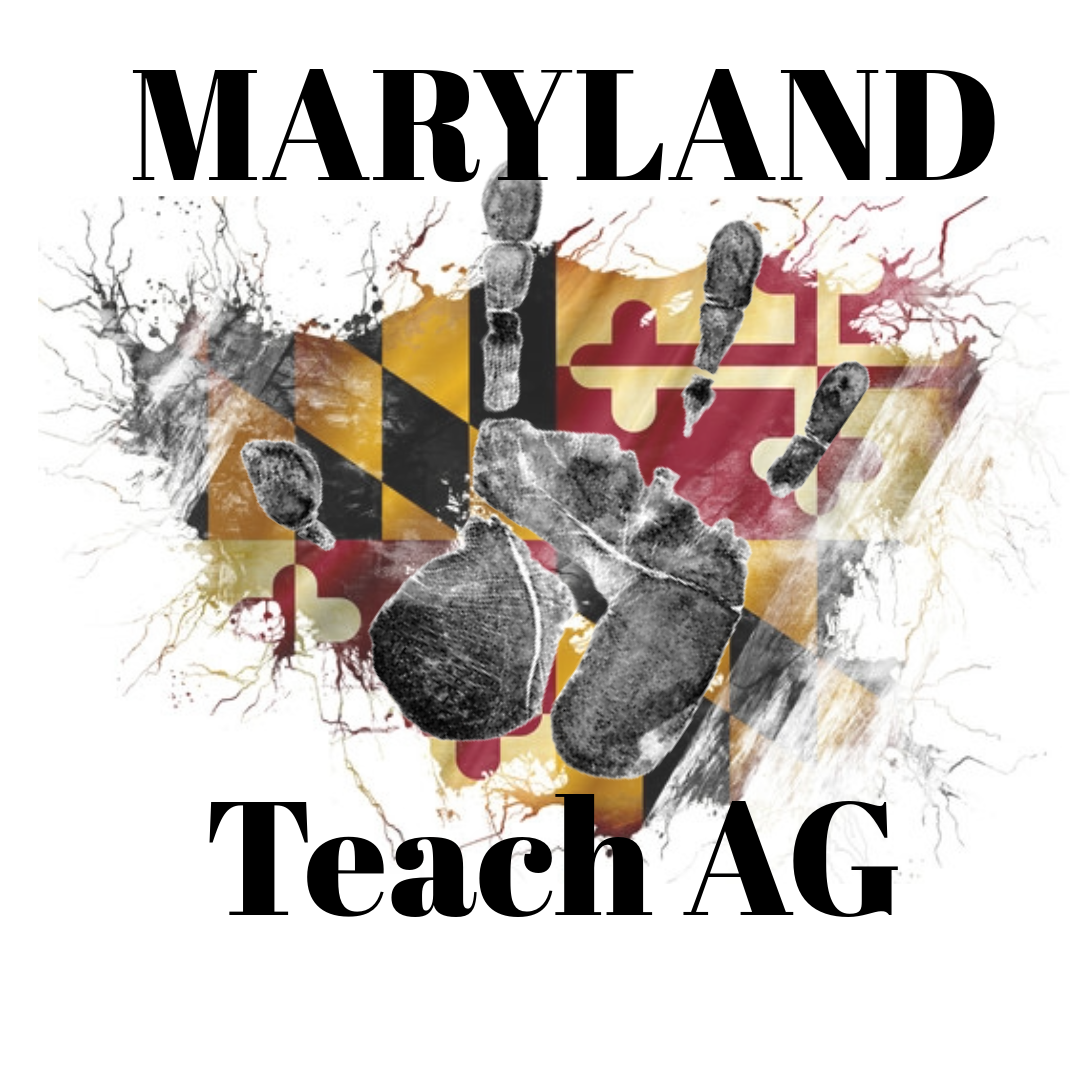
Learn more about Maryland Teach Ag
Our program gives you two options to pursue Agricultural & Extension Education: 1) Double Major Path; or 2) Integrated Masters Path. Agricultural & Extension Education is a University of Maryland program that is a cooperative effort of the College of Agriculture and Natural resources and the College of Education. It is designed to prepare students to teach agriculture and related subjects in high school. Many high schools in Maryland and other states offer an agricultural curriculum that is associated with the FFA.
There are two paths that students can take in preparation for a career as a high school agriculture teacher. In the Double Major Path, students may major in both Agricultural Science and Technology (AGST) and Secondary Education. In the Integrated Master's Path, students can earn a B.S. degree in AGST and a M.A. degree in Education.
WHO SHOULD BE IN AGRICULTURAL & ExTENSION EDUCATION?
If you love agriculture and you enjoy teaching people about the significance of agriculture, then Agricultural Education is for you. Agricultural teachers get to work with and help develop young minds. They also quite often develop in to leaders in the agricultural community on a local and state level.
Double Major Path
Students wishing to double major in AGST and Secondary Education may be able to accomplish this in 4 years. The teaching internship in the last semester of the student's senior year will occur at a Maryland high school with an agricultural curriculum. The double major path is best suited for those students entering the University of Maryland as freshmen that know then or soon after that they want to teach. Students that earn a degree with a double major in AGST and Secondary Education are prepared to apply to the State Board of Education for accreditation.
Integrated Masters Path
All teachers in Maryland are expected to get their Masters degree either prior to accepting a teaching job or while they are employed by a school. The Integrated Masters path involves obtaining a B. S. degree in AGST and a Secondary Education M. A. degree. Those students accepted in to the Secondary M. A. degree program can complete this degree in one year after earning their B. S. degree in AGST. The teaching internship in the last semester of the student's senior year will occur at a Maryland high school with an agricultural curriculum. The Integrated Masters path may be best suited for students that have transferred into the University of Maryland, or have made the decision late during their undergraduate studies that they want to teach.
You can learn more here:
Course Requirements & Four Year Plan
- You may want to also review the official catalog listing for Agricultural Science & Technology.
- Four year plans are great guides to map out your path to graduation.
Contact us
If you would like to learn more, please feel free to contact us! You can fill out a form below, email psla@umd.edu, or contact Dr. Welsh directly (copy psla@umd.edu in your email please).
High School Teachers/Educators:
Would you like us to visit your students? Please fill out the form below:
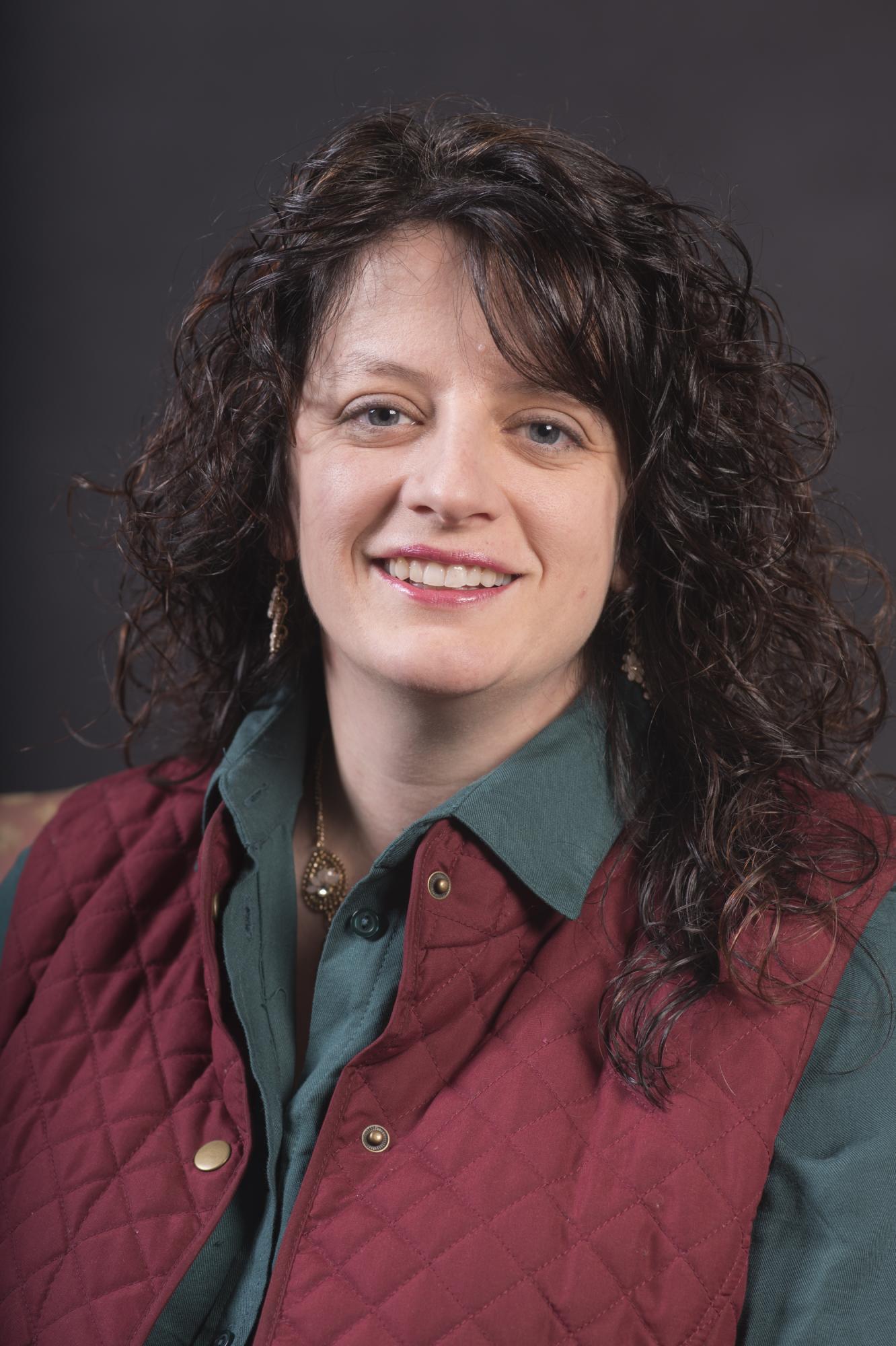
Dr. Melissa Leiden Welsh, Director, Associate Clinical Professor & Advisor for Agricultural & Extension Education
phone301-405-6969
email drmwelsh@umd.edu
Agronomy
Areas of study:
-
Crop Science
-
Sustainable Production
-
Precision Production Agriculture
Agronomy students will be educated in a broad range of agricultural disciplines which will provide them with a comprehensive education in crop, soil and animal sciences.
Here at the University of Maryland, the focus of the program will be for students to gain a sustainable perspective of agronomy. Students will take a holistic approach to the design of their course work. This approach will integrate the science of agronomy by taking courses in Animal Science, Crop Science, Soil Science, Agricultural Economics and Pest Management. This program of study has electives that allow the student to design their curriculum and to develop depth of knowledge in areas that meet their future goals. For example, some students may choose to focus more on agronomic crops or animal sciences, while others may take more courses in environmental sciences or international agriculture. By taking such a comprehensive approach to their education graduates will be prepared to work in the agricultural industry in such areas as agricultural extension, management, marketing, regulatory, support services, teaching, etc. In addition, students completing their Agriculture Science and Technology degree with a specialization in agronomy focusing on the basic sciences will be prepared to enter in to graduate school.
Who are AGST students?
AGST students have diverse backgrounds and professional goals. Some students are interested in managing a farm, environmental aspects of farming, university extension, agricultural communications, marketing, or graduate school. Some students transfer in from community college others start as freshman. A number of students double major in AGST and another university major. However, all AGST have an interest in learning more about agriculture.
ARE YOU INTERESTED IN ADVANCING YOUR AGRONOMY CAREER BY PREPARING FOR THE FAA DRONE PILOTS LICENSE?
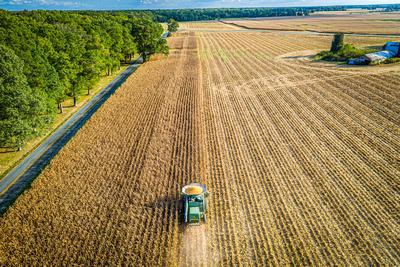
There is a path for you to achieve this attainable goal. To accomplish this goal, you can combine two of your courses, Advanced Crop Science (AGST400) and Tractor and Equipment Operation, Safety and Maintenance (AGST401) with a two-credit PLSC399 independent study course. Together, these three courses will provide you with hands-on drone operation in an agronomic setting while preparing you to take the Federal Aviation Administration (FAA) Part107 Unmanned Aircraft General – Small (UAG) exam. Once you have successfully completed the courses, you will be prepared to register for the FAA exam at one of the many local FAA testing centers in the area (testing and testing fee are the responsibility of the student and are not a part of the university offering).
The first question many students want to know is how long will all of this take. The answer, it is up to you! A student could take all three courses in one spring semester or you could space them throughout your degree, it is up to YOU!
If you are ready to study to enter the world of commercial drone piloting, please contact Dr. Melissa Welsh @drmwelsh@umd.edu.
Course Requirements & Four Year Plan
- You may want to also review the official catalog listing for Agricultural Science & Technology.
- Four year plans are great guides to map out your path to graduation.
Contact us
If you would like to learn more, please feel free to contact us! You can fill out a form below, email psla@umd.edu, or contact Dr. Welsh directly (copy psla@umd.edu in your email please).
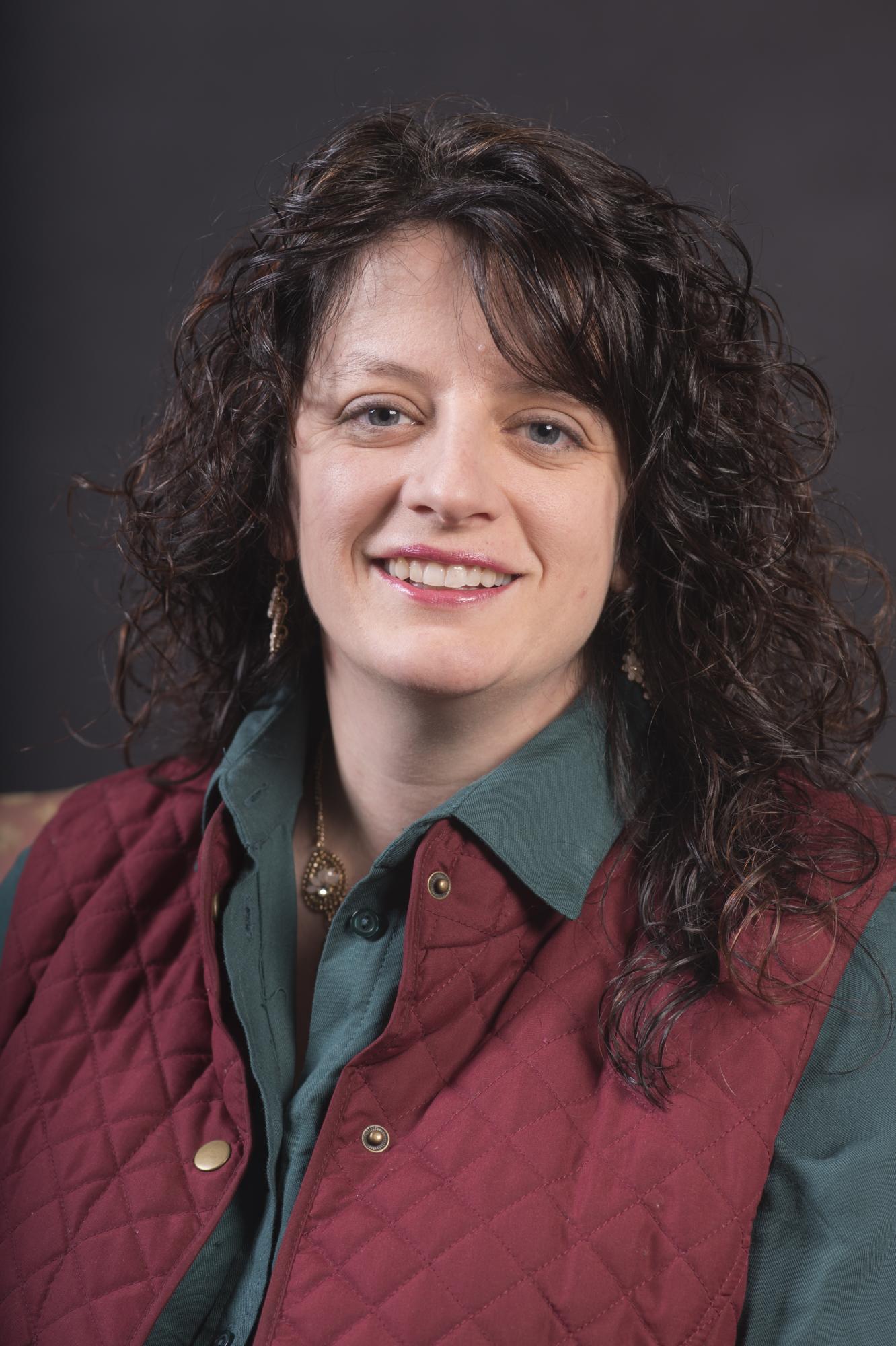
Dr. Melissa Leiden Welsh, Agricultural & Extension Education Associate Clinical Professor & Advisor for Agronomy
phone301-405-6969
email drmwelsh@umd.edu
Environmental Horticulture
Areas of study:
-
Greenhouse and Nurseries
-
Sustainable Orchard and Vegetable Crop Production
-
Viticulture
-
Urban Agriculture
Environmental Horticulture prepares students for advisory and managerial positions in agronomic, greenhouse, nursery, orchard and vegetable crops. Students focus their studies on plant growth and development and plant protection.
The Environmental Horticulture specialization (Formerly Plant Sciences: Horticulture and Crop Production) is designed to lead students toward becoming an owner-operator or a manager in fields such as: environmental horticulture; greenhouse management; container nursery production; fresh fruit and vegetable production; and plant protection. For students who have a strong interest in education, numerous possibilities for rewarding careers also exist in agricultural extension, public gardens, and ornamental horticulture.
Why Study Environmental Horticulture?
The Green Industry is a vibrant and growing component of local and global agriculture. In the State of Maryland it generates more than a billion dollars in annual sales and continues to increase in value despite continued urbanization. Much of this growth is fueled by the production of horticultural plants in nurseries, greenhouses and on farms. Students have the possibility of developing a career in the production, handling and management of a variety of plants and crops.
The Environmental Horticulture academic specialization focuses on the science, technology and management of fruit, vegetable, flower and woody ornamental plant production. In contrast to the Agronomy curriculum, Environmental Horticulture encompasses a smaller, more intensive scale of cultivation and produces a greater diversity of crops. Environmental horticulturists typically produce non-commodity crops which have a much a higher value per unit land area, but are time-sensitive and require precise postproduction handling and marketing. The goal of this curriculum is to provide students with a balanced approach to science and technology that will enable them to become successful managers of horticultural crop production enterprises. Students receive a blend of classroom and hands-on training in the basic principles associated with commercial production systems. The applied aspects of the curriculum include training in plant propagation, greenhouse crop production systems, containerized nursery production, and the application of high tunnels for extending the fruit and vegetable crop production season. Courses in plant science, soil science, plant protection and food safety practices provide the students with the academic resources to implement the production technologies. Graduates of this program pursue careers in urban agriculture, horticultural enterprises and public education programs. There is currently a growing demand for these graduates in the Maryland’s emerging wine and microbrew enterprises. Students can prepare for plant science graduate programs by taking additional courses in Math and Chemistry. These individuals have been employed in government agencies such as the USDA, FDA and university extension programs.
Career Opportunities
- Environmental Horticulture
- Extension Education
- Food Safety and the Postharvest Handling of Fresh Fruits and Vegetables
- Ornamental Horticulture
- Plant Protection of Agronomic and Horticultural Crops
- Public Horticulture
- Sustainable Agriculture and the Direct-Marketing of Horticultural Crops
- Value-added Products from Fruits, Vegetables and Grains
Course Requirements & Four Year Plan
- You may want to also review the official catalog listing for Agricultural Science & Technology.
- Four year plans are great guides to map out your path to graduation.
Contact us
If you would like to learn more, please feel free to contact us! You can fill out a form below, email psla@umd.edu, or contact Dr. Cochran directly.
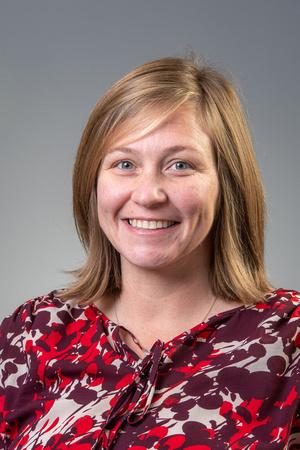
Dr. Diana Cochran, Acting Director, Environmental Horticulture Associate Clinical Professor & Advisor for Environmental Horticulture
phone301-405-6244
email cochrand@umd.edu
Minor
This minor will provide students with an appreciation and understanding of sustainable agricultural crop production.
The core courses provide students with a basic foundation in plant science while supporting courses allow students to broaden their focus in different areas of agriculture. Students can select their courses in either agronomy or environmental horticulture.
Click to follow this path to learn more about Maryland Teach Ag
Learn more
About
Student Experience
All AGST students have an interest in learning more about agriculture.
AGST students have diverse backgrounds and professional goals. Some students are interested in managing a farm, teaching in a FFA program, environmental aspects of farming, university extension, agricultural communications, marketing, or graduate school. Some students transfer in from community college others start as freshman. A number of students double major in AGST and another university major.
Hands-on Experience:
Agriculture is an applied science and all AGST students have the opportunity to experience agriculture. All AGST students are required to do an internship. Students must also take a Capstone class their senior year. Capstone classes are designed to have students apply the knowledge that they have obtained in their studies to solving real-world problems. AGST students are also encouraged to learn outside the structured classroom setting. Many students work in University research labs or on University research farms. The close proximity of the United States Department of Agriculture Beltsville Research Center also provides many opportunities for our students.
AGST students have opportunities to join agriculturally-based student clubs, such as the Agronomy Club, Horticulture Club, Animal Husbandry Club and the collegiate 4H Club. We also have a very active Agricultural Honor Sorority, Sigma Alpha and several judging teams. Each spring semester the University of Maryland sponsors AG Day. This is a student-run event occurs on the campus and it includes many agricultural activities.

Your Future:
The AGST curriculum is designed to help students reach their career goals. The broad base of agricultural courses that students take in this major prepares them for employment opportunities in many agricultural fields. Employment opportunities include agricultural management, regulatory, teaching, extension, technology support, marketing, etc. Some students may wish to continue their education in graduate school. The AGST major is well suited to prepare students for graduate school. Students completing their AGST degree with a concentration in agronomy focusing on the basic sciences will be prepared to enter into graduate school. AGST majors are also prepared to apply to get a masters degree in education, so they can teach agriculture in high school.

Program Learning Outcomes
Program Learning Outcomes
- Students will develop technical and knowledge-based skills in the required areas of study.
- Students will use technical and basic learned knowledge to collaborate, solve problems, and then articulate conclusions.
- Students shall develop effective communication skills and demonstrate the ability to present ideas with clarity to an appropriate audience.
- Students will connect and build relationships with external groups in the appropriate fields of study.

Curriculum
Curriculum
Students first take a series of campus and department-required courses and then select a series of plant science electives that are best-suited to meeting their particular needs and interests. This open-enrollment major accepts both freshman and transfer students. The department has a mandatory advising policy, and each student is expected to meet with his or her advisor at least twice a year.
During the junior or senior year, students are required to enroll in at least one department-approved internship. Students also take a capstone course to integrate knowledge and engage in problem-solving as team members.
You may want to also review the official catalog listing for Agricultural Science & Technology.
You can view course titles, descriptions, and learning outcomes on our Learning Outcomes page.
Contact us today!
Interested in learning more about our programs? Visit us!
Department of Plant Science & Landscape Architecture. For a tour of the Department of Plant Science & Landscape Architecture, please fill a webform. We look forward to your visit!
College of Agriculture & Natural Resources. Contact AGNR staff for an appointment at futureagnr@umd.edu!
University of Maryland Tours. Don’t forget to schedule a campus tour! Also, check out the AGNR Prospective Students page for useful resources including information on financial aid and scholarships.
Contact us today! Schedule a campus tour Visit with the College of AGNR